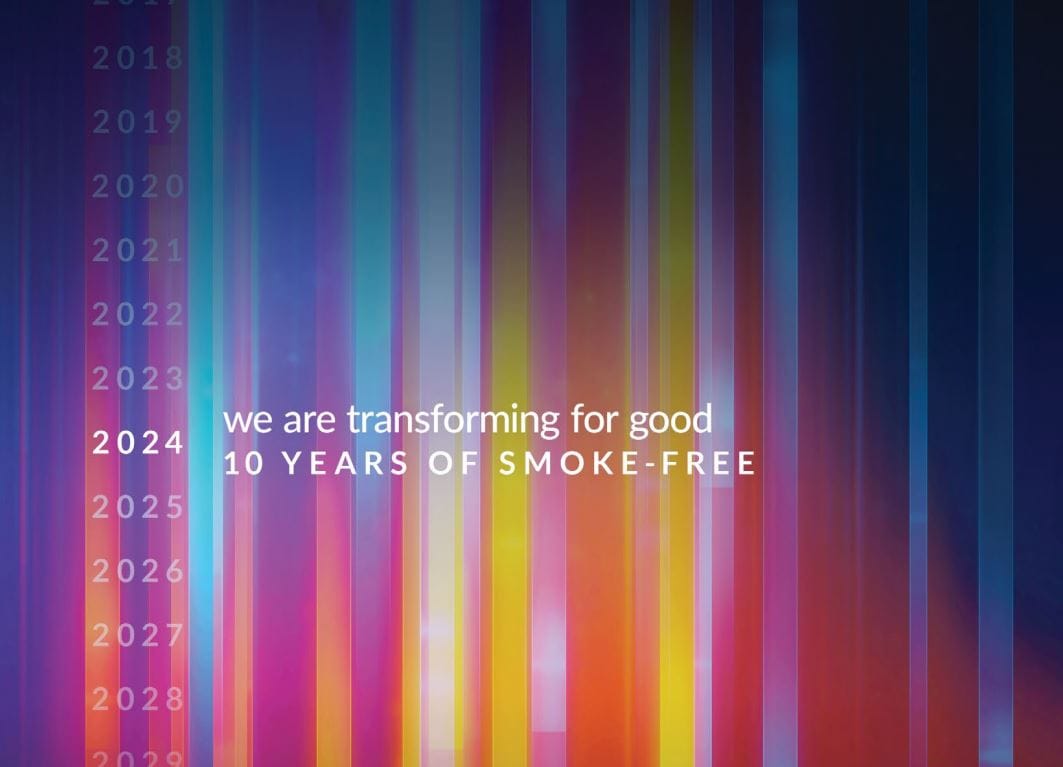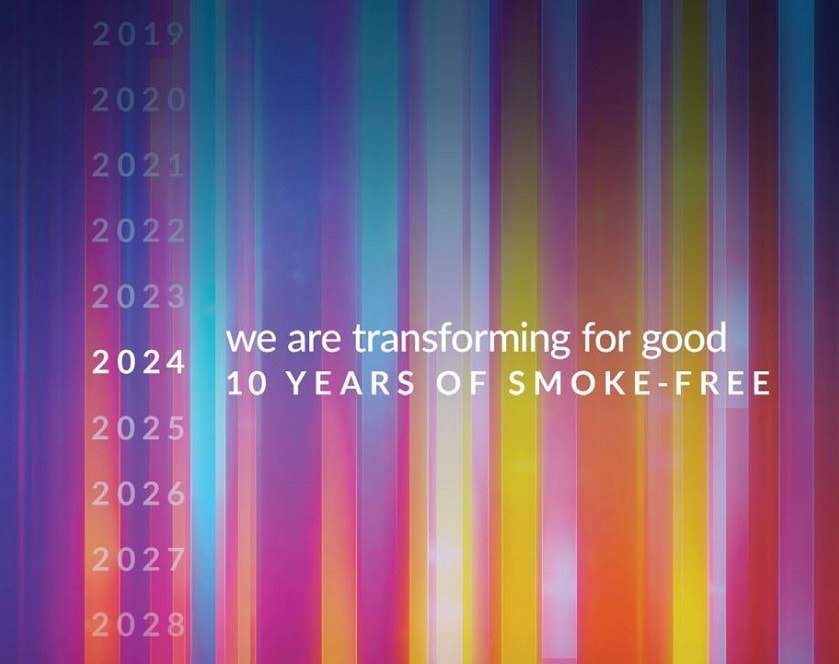Philip Morris International has published its sixth annual Integrated Report, comprehensively detailing the progress we’re making in delivering long-term value to shareholders and achieving our vision of a smoke-free future.
The report marks the 10th year of our business transformation and sustainability disclosures, highlighting how we’re advancing our purpose of making cigarettes obsolete as soon as possible by replacing them with smoke-free alternatives for adults who would otherwise continue to smoke.
“Our 2024 Integrated Report celebrates a milestone year that marked the 10th anniversary of the commercialization of IQOS [PMI’s heated tobacco product] and ZYN [PMI’s nicotine pouch product] and our journey toward achieving one of the most ambitious business transformations in modern history,” said Jacek Olczak, Chief Executive Officer of PMI.
“By the end of 2024, our efforts to expand access to smoke-free products allowed us to reach an estimated 38.6 million adult users, with the products available in 95 markets, demonstrating our deep commitment to sustainability and business transformation.
“These achievements fill me with profound optimism as we continue to create long-term value while addressing our product and operational impacts, not only sustaining but accelerating our momentum, accomplishing a number of goals that only a few years ago seemed too ambitious.”
“The right path forward”
The Integrated Report describes the company’s strategy, business model, and both product-related (‘what’ PMI produces) and operational-related (‘how’ PMI operates) performance.
The report explains our performance and approach to sustainability in the context of an extensive five-pillar framework that includes compliance and risk mitigation, as well as operational efficiency, innovation, and purposeful impact.
It emphasizes how regulatory compliance serves as the foundation, while risk management ensures business resilience—demonstrating how this approach streamlines processes for enhanced productivity and profitability, aligns sustainability with long-term business goals to drive innovation and competitive value, and ultimately aims to lead a significant industry transformation by influencing standards, shaping policy, and driving systemic change that redefines market expectations.
Emmanuel Babeau, Chief Financial Officer of PMI, said: “The path to transformation is rarely linear, and our experience in 2024 reinforces a crucial truth: Achieving a smoke-free future requires a collective effort beyond our direct control.
“Our smoke-free business accounted for approximately 39 percent of PMI’s total net revenues for the full year 2024, with an acceleration in top- and bottom-line growth. Competing in the cigarette market while simultaneously working to transform it is not a contradiction but a necessary phase in our journey.
“Our integrated approach—linking financial success with positive societal impact—positions us well to continue investing in the future. We remain confident that our financial strength, combined with our sustainability leadership, is the right path forward.”
Product and Operational impact: Performance highlights
- Six markets where more than 75 percent of net revenues are generated from smoke-free (compared to three markets in 2023)
- Over USD 14 billion cumulative investment behind smoke-free products since 2008 (compared to USD 12.5 billion in 2023)1
- 99 percent of total shipment volume covered by youth access prevention programs in indirect retail channels (compared to 98 percent in 2023)2
- 0.01 percent prevalence of child labor among contracted farmers supplying tobacco to PMI (compared to 0.1 percent in 2023)3
- 99 percent of contracted farmers supplying tobacco to PMI who make a living income (compared to 96 percent in 2023)4
- 10 human rights impact assessments completed since 2018 in highest-risk countries (compared to eight in 2023)5
- 61 percent of PMI manufacturing facilities certified as carbon neutral (compared to 43 percent in 2023)
- First pre-certified environmental product declarations (EPD) published on IQOS ILUMA i series of heated tobacco devices
Bringing balance to our ambitions
For PMI, our commitment to sustainability isn’t just the right thing to do—it’s imperative to the future success of our business.
“We understand the importance of setting ambitious yet realistic targets that drive our business success,” said Jennifer Motles, Chief Sustainability Officer of PMI.
“Our Sustainability Index has proven instrumental in ensuring our ambitions are balanced and our metrics are objective, while our enhanced nonfinancial data governance helps us report with precision and consistency.
“Our commitment to sustainability is inseparable from future-proofing our business, creating tangible impacts within our control and sphere of influence, and contributing to a transformation that extends beyond our company.”
The Integrated Report 2024 has been prepared with reference to the Global Reporting Initiative (GRI) Universal Standards (2021) and relevant topic-specific standards. It takes into account guidance from the International Sustainability Standards Board (ISSB) of the IFRS Foundation, including using its SASB Standards, Integrated Thinking Principles, and Integrated Reporting Framework.
PMI’s SASB Index and GRI Index, which also maps the principles and standards of the UN Global Compact (UNGC), is available in our sustainability resources. The report is accompanied by the PMI Sustainability KPI Protocol 2024, which provides a transparent explanation of how we define and measure progress for each Sustainability Index KPI.
Please visit pmi.com/sustainability to learn more and read the full Integrated Report 2024, as well as case studies and market stories and the Sustainability KPI Protocol 2024. References to “PMI”, “we”, “our” and “us” mean Philip Morris International including its subsidiaries.
1 Investments reflect research, product and commercial development, production capacity, scientific substantiation, and studies on adult smoker understanding. Figures do not include Swedish Match and wellness and healthcare business.
2 Total shipment volume includes cigarettes, other tobacco products (OTPs), and smoke-free product consumables. See PMI’s Sustainability KPI Protocol 2024 for further details. Data exclude Swedish Match and wellness and healthcare
business.
3 See PMI’s Sustainability KPI Protocol 2024 for further details.
4 Excludes China, Switzerland, and India (flue-cured) due to restrictions on farmer income data, and Thailand and Tanzania
since the living income benchmark is still under development. See PMI’s Sustainability KPI Protocol 2024 for further details on methodology.
5 See PMI’s Sustainability KPI Protocol 2024 for further details.


